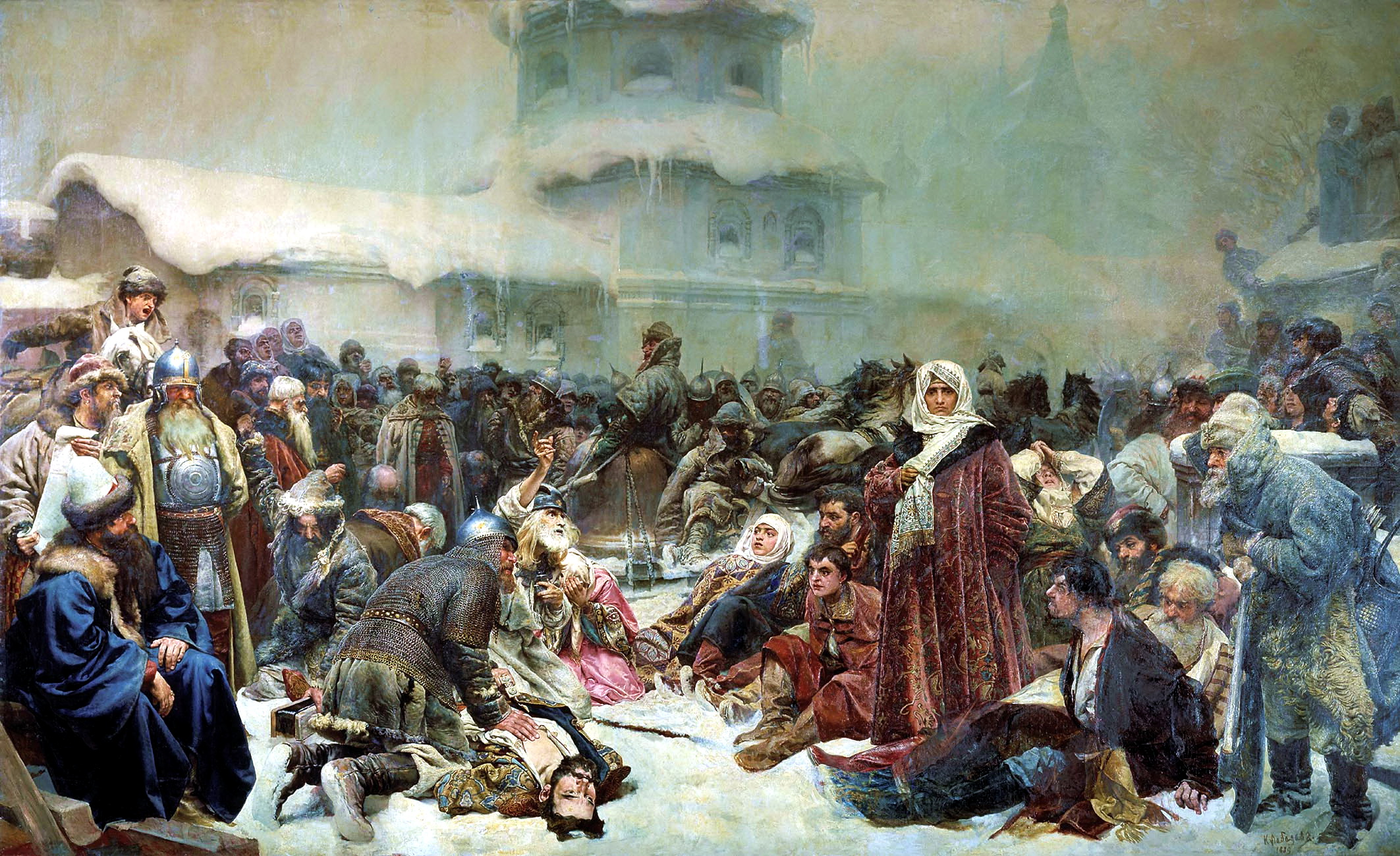In one of the first of this blog’s posts, we discussed Russian Literature. In this post, we’ll discuss Russia’s early history.
Winston Churchill once described Russia as “a riddle wrapped in a mystery inside an enigma.” Here Churchill expresses the vastness and complexity of a seemingly esoteric land. As we look at it on a map, Russia provides a big series of questions, but no answers. Questions like; how did it get there, what do its people believe, how do they live and so on. I do not intend to answer all or any of these questions in this post, that would take an entire blog in and of itself, rather I hope to get the reader started on a path of exploration. Here we go.
 |
| Medieval Novgorod |
Surprisingly, the first chapter in modern Russian history doesn’t begin with Slaves, but Swedish Vikings. In search for new markets in the east, a group of Swedish Vikings called the Rus moved into the vast Eurasian steppe in the late 8th century. They soon came to dominate the politics of the Slavic cities that sprinkled the frozen steppes between the Baltic and Caspian Seas. Moscovy, Kiev, Novgorod grew into trading centers between the major Medieval metropolises of Baghdad, Constantinople and the Northern Scandinavian trade cities. As their presence became apparent to the Byzantines, Emperor Michael III sent a missionary named Cyril to convert the Slaves to the North in 860AD. Know as the Apostle to the Slaves, Cyril not only converted thousands to Christianity, but gave them a Bible in their own language for which Cyril developed an entirely new alphabet, the Cyrillic script.
Once the Byzantines established a relationship with the Slavic Princes to the North, the Russians came to identify themselves with the Greek Orthodoxy based in Constantinople rather than Catholicism which was based in Rome. This divide between the two churches would affect Russia long after Constantinople fell to the Ottomans and the Protestant Reformation rocked Europe. Isolation became the policy for Russia as the long winters dissuaded passage across the steppes. Alone and secluded, Russia seemed to be in a period of hibernation asleep and content to be. Yet Europe beckoned and try as they may, the forces of the old order could hold back the clock no longer.
To be continued.

St. Basil's is so beautiful. Thanks for all these fascinating posts. :-)
ReplyDelete